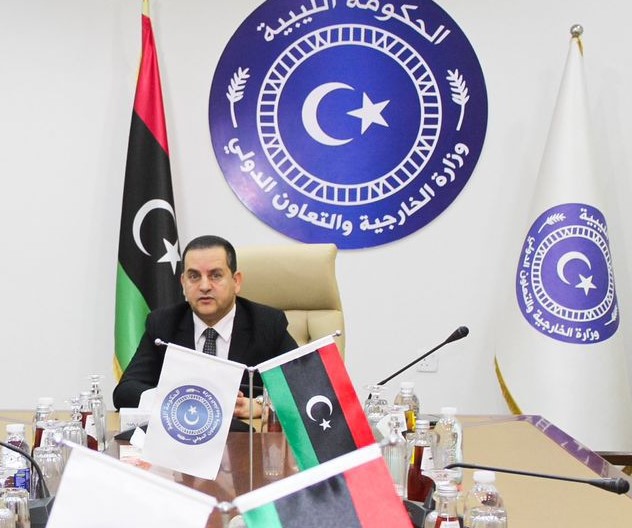Soldecanarias.net / Adeje
In an effort to promote local development and improve the quality of life for communities near oil fields, Libya’s Minister of Foreign Affairs and International Cooperation, Abdulhadi Al-Hweij, met with a group of Libyan elders and sheikhs to discuss the implementation of the social responsibility obligations of foreign oil companies operating in the country.
During the meeting, held amid growing tensions in oil-producing areas, the representatives of local communities presented a series of urgent demands to improve living conditions in the regions surrounding the Sharara and Al-Fil oil fields, two of the most important in Libya. The elders emphasized the need for oil companies to take a more active role in social welfare by providing essential services such as healthcare and quality education.
Additionally, they called for the creation of job opportunities for qualified residents of the areas near the oil fields, aiming to combat unemployment and prevent young people from being forced to migrate in search of better opportunities. “It’s not just about extracting our resources; we also want our communities to thrive,” one of the attending sheikhs remarked.
Minister Al-Hweij highlighted the importance of this dialogue, stating that economic development must go hand in hand with social justice and the well-being of communities. “It is essential that companies profiting from our natural resources also contribute to improving the lives of those living in these areas. Libya’s stability largely depends on ensuring that these regions receive the support they need,” the minister said.
Foreign oil companies have faced criticism in the past for their limited contributions to the areas where they operate, despite the significant profits they earn from Libyan oil. In this context, local authorities seek to establish clear agreements that require companies to allocate part of their revenues to projects directly benefiting the communities.
The meeting between the minister and local leaders reflects the Libyan government’s growing interest in strengthening ties between foreign corporations and local communities, aiming to ensure that the exploitation of the country’s natural resources contributes to sustainable development. However, it remains to be seen how the oil companies will respond to these demands and whether the commitments made will lead to tangible improvements for the affected populations.
Libya, rich in energy resources, continues to face significant challenges stemming from political instability and internal conflicts. Proper management of its resources and cooperation between foreign companies and local authorities are crucial to ensuring a more prosperous and equitable future for its citizens.



